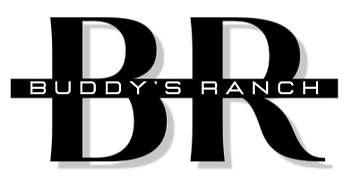What Are the Stages of Addiction?
Addiction doesn’t happen overnight—it typically develops through a series of phases, each with its own signs, challenges, and intervention points. Recognizing these stages can help individuals, families, and treatment professionals respond in timely and effective ways.
Initial Use / Initiation
The journey often begins innocently—maybe a prescription for pain, a first drink at a party, or curiosity-driven experimentation. Though experimentation doesn’t always lead to addiction, it does open the door. Factors like genetics, environment, mental health, and peer groups significantly influence risk.
Misuse
This stage sees use shift from occasional to patterned—perhaps weekly drinking or weekend drug use. Tolerance may start to build, making it harder to stop despite knowing risks.
Escalation
Use begins to create negative consequences—stress at home, legal issues, damaged relationships, or risky behaviors like driving under the influence. Despite these warnings, use continues.
Dependence
By now, both psychological and physical dependence are present. The user feels compelled to continue, and may experience withdrawal symptoms—tremors, nausea, anxiety—when trying to quit.
Addiction
This stage is characterized by a loss of control. Use becomes compulsive despite clear, harmful consequences. According to the DSM‑5, addiction involves continued use even when it causes significant impairment or distress.
Neurobiologically, addiction reflects a three-part brain cycle:
- Binge/Intoxication – reward and dopamine surge
- Withdrawal/Negative Affect – stress and dysphoria set in
- Preoccupation/Anticipation – craving overwhelms decision-making.
Relapse
Relapse isn’t a failure—it’s a signal the person is cycling backward and often part of the recovery journey. Stress, environmental cues, or even a small re-exposure to the substance can trigger it. Recognizing relapse as a stage helps redirect toward support instead of judgment.
The Stages of Change
Parallel to substance stages are stages of behavioral change that individuals typically pass through while recovering:
- Precontemplation: Unaware, dismissive, or denying a problem exists.
- Contemplation: Acknowledging the impact and considering change.
- Preparation: Planning and taking small, early steps toward change.
- Action: Actively working to change—engaging in treatment or new habits.
- Maintenance: Sustaining changes, preventing relapse.
- Termination: Habit change becomes second nature; old behaviors have no pull.
- Relapse (possible recycling): Recognized and managed part of the process.
Why Understanding These Stages Matters
- Early Detection & Intervention – Spotting behavior in the misuse or risky-use phase allows for prevention before dependence sets in.
- Tailored Support & Treatment – Intervention strategies should align with a person’s stage (e.g., motivational interviewing in contemplation; medically assisted detox in dependence).
- Relapse Reduction – Recognizing relapse as part of recovery helps normalize the experience and encourages people to get back on track with support.
Comprehensive Support Services at Buddy’s Ranch
At Buddy’s Ranch, located in the tranquil landscape of Northern California, we are dedicated to offering tailored care that addresses the unique needs of clients at every stage of their recovery journey. Our multi-faceted approach ensures that individuals receive the specific support they require, promoting a successful path to recovery.
Medically Supervised Detox
Our detox program provides a safe and supportive environment for individuals undergoing withdrawal. With 24/7 medical monitoring by a dedicated team of professionals, we ensure that clients experience this critical stage as safely as possible. This careful supervision is essential for a smooth and effective transition away from substance dependence, allowing clients to focus on their recovery without the anxiety of withdrawal symptoms.
Residential Programs
For those actively struggling with addiction, our residential programs offer an immersive experience in a serene, home-like setting. This calming environment is designed to foster healing, where clients can fully engage in evidence-based practices and holistic therapies. Our structured daily schedule includes therapeutic activities, life skills training, and wellness workshops that promote overall well-being and aid in the recovery process.
Dual Diagnosis and Mental Health Care
Recognizing the intertwined nature of addiction and mental health disorders, our dual diagnosis programs provide comprehensive care tailored to address both issues simultaneously. Our skilled therapists work collaboratively with clients to create personalized treatment plans that target the underlying mental health challenges contributing to substance misuse, fostering long-term stability and recovery.
Holistic and Evidence-Based Modalities
At Buddy’s Ranch, we utilize a variety of therapeutic approaches to match each client’s readiness to change. Our treatment modalities include Cognitive Behavioral Therapy (CBT), Dialectical Behavior Therapy (DBT), Acceptance and Commitment Therapy (ACT), family therapy, mindfulness practices, art therapy, and 12-step facilitation. This diverse array of techniques allows us to connect with clients on multiple levels, enhancing their engagement and promoting healing.
Aftercare and Alumni Support
The journey to recovery extends beyond formal treatment. Our robust aftercare and alumni support networks are designed to provide ongoing assistance and community for individuals in the maintenance or post-treatment stages. Through continued connection and resources, we help clients build a sustainable recovery plan that encourages long-term success and minimizes the risk of relapse.
At Buddy’s Ranch, we are committed to meeting clients where they are, providing compassionate care and expert support tailored to each individual’s unique journey toward healing and recovery.
Find The Help You Need at Buddy’s Ranch
Addiction is a multifaceted journey, often involving progression through initial use to dependence, and possibly relapse. The transtheoretical stages of change describe the psychological path from denial to sustained recovery. By understanding these phases, Buddy’s Ranch empowers individuals and families to recognize where they are in their journey—and connects them with the right care to move forward.
If you—or someone you love—is struggling at any point in this process, reach out. At Buddy’s Ranch, we’re here with compassion, expertise, and a path toward lasting recovery.





